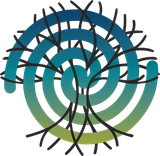I Trained an AI Coach…here’s what surprised me.

Coaching is personal. It’s built on trust, presence, and human connection. So when I tell people I’ve been training an AI version of myself to coach, I usually get one of two reactions: fascination or discomfort.
And honestly, I’ve felt both.
As an executive, leadership, management and team coach, I’ve spent years honing the ability to hold space, ask meaningful questions, and support people through change. Coaching isn’t just what I do—it’s who I am. So, the idea of replicating even part of that through artificial intelligence felt both intriguing and risky.
But here’s why I did it.
Many organizations—and many individuals—don’t have access to coaching. And one of my key values when I launched The LeBlanc Leadership Group – The LIVE. LEARN. GROW. Company was to make this work accessible.
Whether due to budget, capacity, or availability, too many people are left navigating complex challenges without support. I started wondering:
What if coaching could be more accessible? What if people had a way to tap into coaching moments more frequently—even in between live sessions?
That’s where the idea of training an AI coach came in.
This AI isn’t meant to replace real human coaching. Instead, it’s an extension of the work I already do. It’s trained on my language, my frameworks, and my values. It offers prompts to reflect on before a tough conversation. It helps leaders prepare for feedback sessions. It supports moments of clarity when someone’s feeling stuck or overwhelmed. It can’t read the emotional nuance in your voice—but it can guide you through a coaching mindset, anytime you need it.
And here’s what surprised me: In building this AI, I had to really get clear on what I believe about coaching. What language do I use consistently? What questions do I return to again and again? What matters most in the space I create with clients? Training the AI helped me rediscover some of the essence of my coaching practice.
Of course, there are limits. An AI can’t feel. It can’t hold silence with you. It can’t see the look in your eyes when you realize something profound. But it can be a bridge—between sessions, for those without access, or for people just beginning to explore their own development.
So no, the AI coach isn’t “me.” But it’s something I’ve built with intention and care—just like I do with every coaching relationship.
I believe the future of coaching isn’t AI or human. It’s both. It’s using technology to expand reach without compromising values. It’s using tools to create more space to lead.
Curious? I’d love your thoughts. What excites you—or worries you—about AI in coaching? Could you see yourself using something like this?
I am looking forward to launching David AI soon. The conversation is just beginning. Let’s have it—together.





